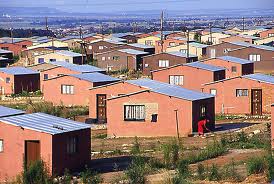2011-05-03
Chris Mahlangu
Mahlangu’s previous attorney Puna Moroko came under fire by Mahlangu’s new attorney, Advocate Kjomogso Tlowana, for not having carried out the required legal work.
Puna Moroko
Tlowana submitted that forensic and DNA evidence, photographs, witness statements and pointing-outs had not been examined by experts.
He said Moroko should have tracked down potential witnesses to help the defence, but had not done so.
The court heard that Moroko had made numerous statements to the media that were potentially detrimental to Mahlangu’s case. These reports may be included in the defence’s evidence.
Tlowana said his client would be prejudiced and not receive a fair trial if the case was not postponed.
Previous counsel’s withdrawal slammed
Advocate Norman Arendse, acting on behalf of the minor, said there was reason to believe Moroko had not consulted with Mahlangu since last year. He said Moroko only contacted Mahlangu on Thursday to tell him he was withdrawing from the case.
Norman Arendse
Lawyers Norman Arendse and Zola Majavu talk at the Ventersdorp High Court.
“And this was only confirmed on Friday…. To withdraw at the last minute is totally unacceptable… it should be looked at by the Law Society… it brings the law profession into disrepute,” an angry Arendse said.
Arendse said there was a possibility both defence teams could merge.
“There is a possibility that we may form one defence team for both accused. That requires a lot of attention, consent of the accused and consent from the minor's parents.”
Judge John Horn said the trial would have to start before next Friday as he would be unavailable thereafter.
Judge John Horn
Arendse argued that if Horn was not available, another judge should be assigned to the case.
“Once the defence finds a strategy, we may reapply for bail. We are mindful of the great public interest… but this should also not weigh heavily against the accused. This request is far from being unusual,” Arendse said.
Untagged media barred from court
The court gave the defence until Monday to say when it would be ready for trial, but the case would not go ahead on Monday.
The media and four Terre'Blanche family members were placed in a small room with two large flat screen, closed-circuit televisions to view Tuesday's proceedings.
The 16 journalists granted access to the room were handed green name cards by a court official, and were subjected to a search. Those without the tags could not enter the room.
Photographers and cameramen were escorted to the actual courtroom where they were allowed to take pictures and film only Mahlangu.
A large group of uniformed AWB members, and supporters of the accused stood outside the court house as police put up yellow crime scene tape to keep them away from the gates. Police and security officials were at various points at the court.
At the pair's first court appearance last year, local black residents and AWB members taunted each other, almost coming to blows. Police separated them with barbed wire. There were however no such scenes on Tuesday.
Mahlangu and the minor allegedly bludgeoned Terre'Blanche to death at his farmhouse in April last year, apparently due to a wage dispute.
A bed, with blood stains, is seen inside Eugene Terre’Blanche’s home where the AWB leader was found murdered at his farm in Ventersdorp, North West.
A bloodied tooth ripped out. A bloodstained wooden bed-frame. A filthy carpet. Crime-scene tape fluttering in the breeze.
These are some of the reminders of AWB leader Eugene Terre’Blanche’s last moments.
There were also claims that the murder was linked to the singing of "shoot the boer" by ANC Youth League leader Julius Malema.
Julius Malema
http://www.news24.com/SouthAfrica/News/TerreBlanche-case-delayed-Defence-not-ready-20110503

































